
The 9 Best Melatonin-Free Natural Sleeping Aids
Do you struggle to drift into a healthy, restful slumber? You're not alone—a good night's sleep is a rare treat for lots of people. As such, many individuals turn to sleep aids. While melatonin is among the most popular, it's often not the best option. Read on to learn about melatonin's disadvantages, and discover nine natural alternatives.f
Are you struggling to get a good night’s sleep? You’re not the only one. More than half of Americans are thought to suffer from poor sleep quality and/or quantity, and over 10% of Europeans are believed to experience chronic insomnia (2020 Sleep in America® Poll…, 2020; European Insomnia Network (EIN) | ESRS, n.d.).
Getting plenty of healthy, nourishing sleep is crucial for the brain and body to function properly. Disturbed sleep is not just an inconvenience. A lack of sleep or poor sleep quality can impair your emotional and physical health.
While melatonin supplements are known as a popular sleep aid, there are some good reasons to avoid them. Fortunately, there are some alternatives that you can try if you're craving to drift into a cosy, continuous slumber. In this article, we discuss why you might want to avoid melatonin and choose one of our natural sleep aids instead.
Why people avoid melatonin supplements
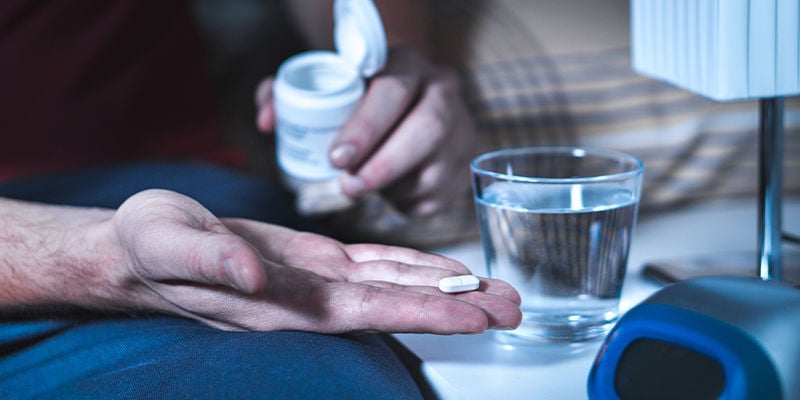
Also referred to as the “hormone of darkness”, melatonin is an endogenous hormone that helps to regulate our sleep-wake cycle. It gets released from the pineal gland in response to low light, which gets activated only in the evening to signal the brain that it’s time for bed.
That is why melatonin supplements have become a commonly used sleep aid. However, people try to avoid it for a number of reasons:
- Melatonin supplements aren’t suitable for long-term use. According to a group of sleep medicine experts, melatonin shouldn’t be used for chronic insomnia (Sateia et al., 2017). Also, side effects of its long-term use aren’t clear.
- Melatonin could affect how easy you find it to fall asleep, but it won’t necessarily help you stay asleep or reach deep sleep stages, which are crucial for the body to restore itself.
- It can interact with other prescription drugs, for example drugs used to treat diabetes or high blood pressure.
- Melatonin doesn’t solve health issues like sleep apnea or anxiety, which might be underlying causes of sleep disruptions.
Nature has it — 9 natural alternatives to melatonin
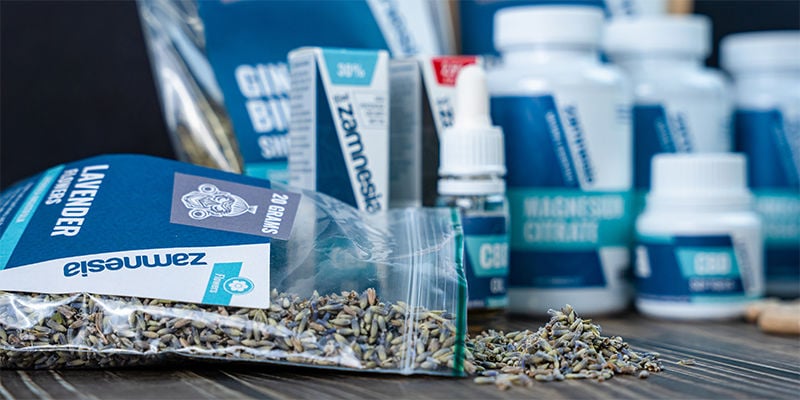
In the following, we’ll introduce you to nine natural sleep aids that could influence different aspects of your sleep disturbances. While broadly they may serve the same purpose, each one has individual properties in terms of potential effects and consumption. Read on to discover the best one for you.
Valerian
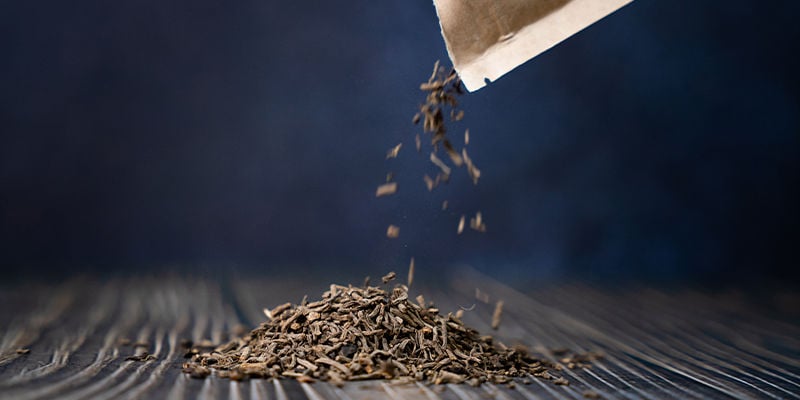
Valerian (Valeriana officinalis) is a herb native to Asia and Europe, but it can also be found in North America. Valerian root has a long history of holistic use dating back to ancient Greece and Rome, and it is also utilised in traditional Chinese medicine.
These days, valerian supplements are commonly used to promote healthy sleep function across Europe and the United States (Shinjyo et al., 2020), even more commonly than melatonin (American Academy of Sleep Medicine, 2007, July 1). A 2018 review examined whether menopausal and postmenopausal women saw their sleep quality improve and their sleep disorder symptoms ease after taking valerian (Khadivzadeh et al.). In another study, researchers investigated if valerian could affect sleep quality and sleep latency (Bent et al., 2006).
While most findings on the root’s effectiveness are subjective, valerian is generally considered safe and gentle, so you may want to give it a try. You can make valerian root into a soothing tea and drink it either 1–2 hours before going to bed, or once during the day and once close to bedtime.
Magnesium

Magnesium is a mineral that supports various processes in the human body, such as nerve and muscle function as well as brain function and heart health. The mineral is also said to have a soothing effect on the mind and body (Shinjyo et al., 2020). Researchers have been investigating whether this may be due, in part, to its role in regulating melatonin production and its ability to increase levels of GABA, a neurotransmitter with calming effects (Boyle et al., 2017).
Further research aimed to determine if magnesium could help the muscles relax and make it easier to fall asleep (Cao et al., 2018; Arab et al., 2022). Furthermore, Boyle et al. investigated whether it may have an effect on moderate anxiety (2017), which is often an underlying cause of sleep problems.
You can take magnesium in tablet form (1–2 per day) with water, which makes it easy to consume.
GABA
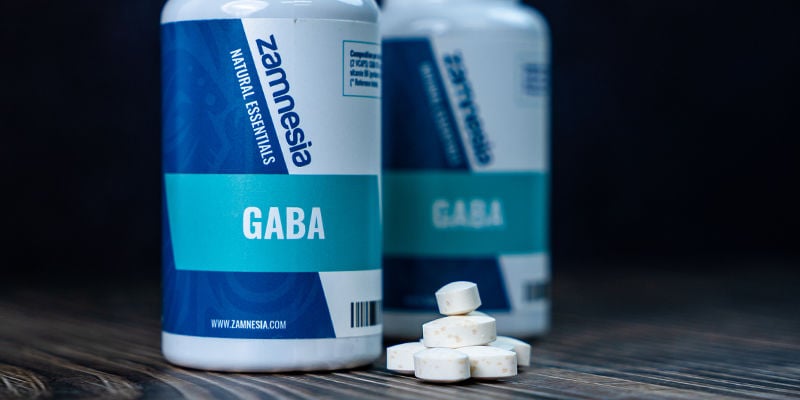
Gamma-aminobutyric acid (GABA) is the main inhibitory neurotransmitter of the human brain, meaning it calms our stress response. As such, it helps us to rest and relax.
Supplemental GABA is produced in a process involving fermentation, and a 2018 study explored whether people found it easier to fall asleep and stay asleep after taking it (Byun et al.). More specifically, Abdou et al. looked to ascertain if taking GABA supplements one hour before going to bed influenced anxiety and fostered relaxation among participants (2006).
Our GABA supplement comes in capsules and is enriched with amino acids and vitamins to maximise bioavailability. Take one capsule with water 2–3 times per day or as advised.
Lavender

Lavender (Lavandula angustifolia) is known for its lovely aroma and the distinctive purple colour of its flowers, which have various uses. It can be found all over the globe, and has long been favoured as a natural sleep aid.
Researchers have been investigating if lavender’s scent could impact sleep quality in people with mild sleep disturbances (Lillehei et al., 2015). In a 2020 study, Yıldırım et al. studied whether smelling lavender oil before bedtime could produce a significant effect on sleep quality (2020).
Lavender can be used in numerous ways. The more traditional options include oils, salves, and tea. Also, you can fill a sock or a small linen bag with the herb and place it beneath your pillow. And today, many users choose to vaporize plant material containing lavender essential oil.
Passionflower

Passionflower (Passiflora incarnata), also known as maypop, is another plant with a long history as a natural sleep aid. The plant’s potential to enhance sleep has been studied in the context of animal studies (Kim et al., 2019). In a 2017 study, researchers sought to determine if passionflower’s effects in humans may be dependent on the form of administration (Guerrero & Medina).
In a 2020 study of people with insomnia disorder, scientists investigated whether participants who used passionflower extract over the course of two weeks saw significant improvements in sleep parameters such as total sleep time or sleep efficiency and wake after sleep onset (Lee et al.).
You can use passionflower leaves or extract to make tea or tinctures. Alternatively, you can fill capsules with passionflower extract or grind the leaves for the same purpose.
L-tryptophan
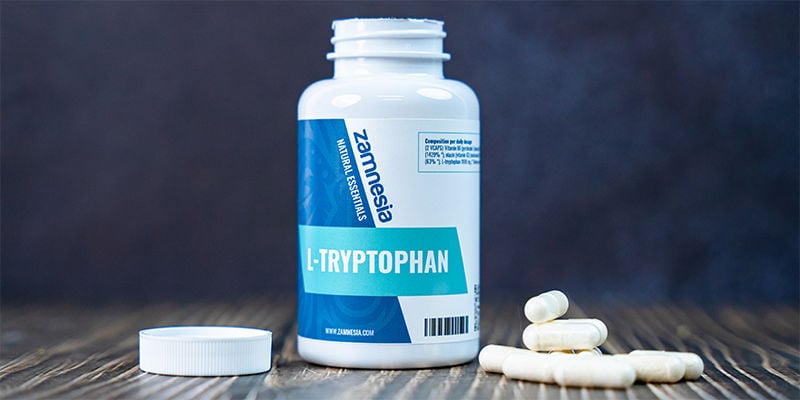
This amino acid is not only a building block in protein synthesis, but also functions as a biochemical precursor to serotonin and niacin. Yet, tryptophan cannot be synthesised by the human body, which makes intake through food and/or supplementation indispensable.
A recent review examined if L-tryptophan supplementation could influence sleep quality, as the researchers hypothesised it may have the ability to shorten wake after onset—i.e. the amount of time people struggle to go back to sleep after waking up in the night (Sutanto et al., 2021).
You can take encapsulated L-tryptophan with water, either 30 minutes before or two hours after a meal.
Ginkgo biloba
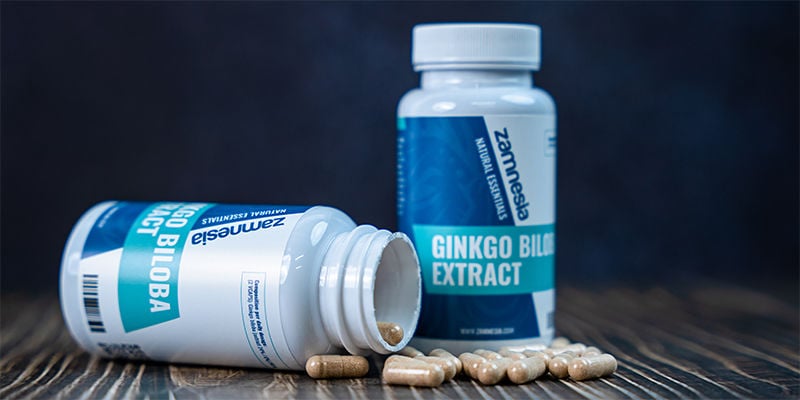
The Chinese consider the ginkgo tree sacred, and for good reason. It is one of the oldest living trees, and the active compounds in its leaves are thought to have numerous potential effects on wellness, including memory enhancement.
When it comes to sleep, scientists have investigated if ginkgo may have the ability to ease stress and promote relaxation (Murray et al., 2001). Further research looked to see if people experienced changes in sleep efficiency and awakenings in the night after taking ginkgo (Hemmeter et al., 2001).
The shredded leaves of the ginkgo tree can be used to make tea. It’s advised to consume ginkgo 30–60 minutes before going to bed.
CBD & CBN
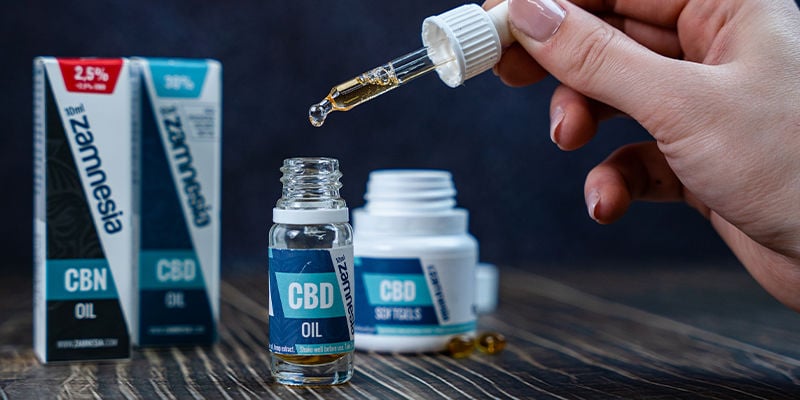
CBD and CBN are non-intoxicating cannabinoids that interact with the human body’s endocannabinoid system. Due to this interaction, researchers are examining whether CBD and CBN could potentially influence sleep.
Many supplements that people take to combat stress, anxiety, or insomnia contain CBD, which you may be more familiar with than CBN. The latter is anecdotally used by individuals looking to improve sleep or issues with inflammation.
CBD and CBN can be used separately or together. Combining them may initiate the so-called “entourage effect”, which could potentially increase their impact and provide further benefits. Browse through the Zamnesia Healthshop for a complete selection of CBD and CBN products.
A special combination to keep you asleep
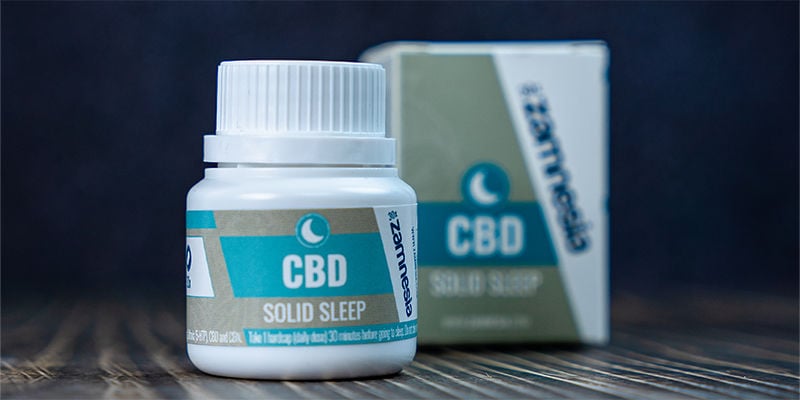
Solid Sleep from Zamnesia features a special formula that aims to improve sleep quality. It contains the above-mentioned cannabinoids CBD and CBN, hops, and 5-HTP. In a 2016 study, researchers examined whether 5-HTP supplementation could decrease sleep latency (Hong et al.), while Franco et al. studied if hops may have sedative effects (2012).
Our finely tuned Solid Sleep formula harnesses all these properties to promote a healthy, restful sleep. It comes in capsules, of which you can simply take one with water before going to bed.
Things you can change about your life, and bedroom
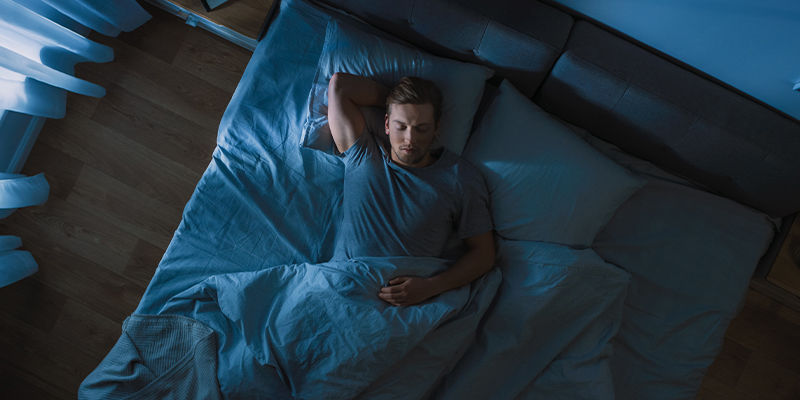
While some people find natural sleep aids helpful, adjusting your sleep habits and keeping your body in a balanced state may be sufficient by itself, or work as a necessary addition to other measures used to improve sleep. Things you can try include:
- Exercise: Physical activity helps many people to improve their sleep. However, make sure you time it right—don’t do aerobic exercise during the two hours before going to bed, as this will probably make you feel more awake.
- Keep cool: Keep your room temperature at 18–22°C.
- Go dark: Not only does the light from electronic devices interfere with sleep, but turning the bathroom lights on at night can make it more difficult to go back to sleep. Also, make sure to use blinds or curtains to make your bedroom a completely dark space at night.
A final note on sleep problems and sleep aids
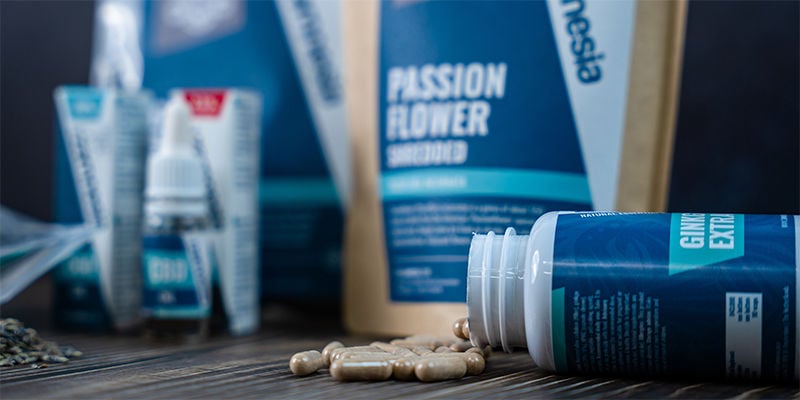
Whichever one you choose to try, keep this in mind: a sleep aid can be useful as a temporary solution, but if you struggle to get a good night’s sleep in the long term, there might be underlying conditions behind your sleep disturbances. If this applies to you, consider consulting a health professional for specific advice. If you don’t suffer from any underlying conditions, you may find our natural sleep aids useful.
Visit the Zamnesia Healthshop for more detailed information on each of them, such as potential side effects and recommendations on how to consume them.
- Abdou, A. M., Higashiguchi, S., Horie, K., Kim, M., Hatta, H., & Yokogoshi, H. (2006). Relaxation and immunity enhancement effects of γ-Aminobutyric acid (GABA) administration in humans - https://doi.org
- American Academy of Sleep Medicine. (2007). Journal SLEEP: Many Insomniacs Turn to Valerian and Melatonin to Help Them Sleep - American Academy of Sleep Medicine – Association for Sleep Clinicians and Researchers - https://aasm.org
- Arab, Arman, Rafie, Nahid, Amani, Reza, Shirani, & Fatemeh. (2023, January). The Role of Magnesium in Sleep Health: a Systematic Review of Available Literature - https://doi.org
- B. J. Murray, P. J. Cowen, & A. L. Sharpley. (2001, July). The Effect of Li 1370, Extract of Ginkgo biloba, on REM Sleep in Humans - https://doi.org
- Bent, S., Padula, A., Moore, D., Patterson, M., & Mehling, W. . (2006). Valerian for Sleep: A Systematic Review and Meta-Analysis. The American Journal of Medicine - https://doi.org
- Boyle, Neil Bernard, Lawton, Clare, Dye, & Louise. (2017/5). The Effects of Magnesium Supplementation on Subjective Anxiety and Stress—A Systematic Review - https://doi.org
- Byun, Jung-Ick, Shin, Yu Yong, Chung, Sung-Eun, Shin, & Won Chul. (2018/07/01). Safety and Efficacy of Gamma-Aminobutyric Acid from Fermented Rice Germ in Patients with Insomnia Symptoms: A Randomized, Double-Blind Trial - https://doi.org
- Cao, Yingting, Zhen, Shiqi, Taylor, Anne W., Appleton, Sarah, Atlantis, Evan, Shi, & Zumin. (2018, October). Magnesium Intake and Sleep Disorder Symptoms: Findings from the Jiangsu Nutrition Study of Chinese Adults at Five-Year Follow-Up - https://doi.org
- European Insomnia Network. (2020). European Insomnia Network (EIN) | ESRS - https://esrs.eu
- Guerrero, Fructuoso Ayala, Medina, & Graciela Mexicano. (2017). Effect of a medicinal plant (Passiflora incarnata L) on sleep - https://doi.org
- Hong, K. B., Park, Y., & Suh, H. J. (2016). Sleep-promoting effects of a GABA/5-HTP mixture: Behavioral changes and neuromodulation in an invertebrate model - https://doi.org
- Khadivzadeh, Talat, Abdolahian, Somayeh, Ghazanfarpour, Masumeh, Kargarfard, Leila, Dizavandi, Fatemeh Rajab, Khorsand, & Imaneh. (2018/08/01). A Systematic Review and Meta-analysis on the Effect of Herbal Medicine to Manage Sleep Dysfunction in Periand Postmenopause - https://doi.org
- Kim, G., Kim, Y., Yoon, S., Kim, S., & Yi, S. S. (2019). Effects of Passiflora incarnata Linnaeus on polysomnographic sleep parameters in subjects with insomnia disorder - https://doi.org
- Lee, J., Jung, H. Y., Lee, S. I., Choi, J. H., & Kim, S. G. . (2020). Effects of Passiflora incarnata Linnaeus on... : International Clinical Psychopharmacology - https://doi.org
- Lillehei, A. S., Halcón, L. L., Savik, K., & Reis, R. (2015). Effect of Inhaled Lavender and Sleep Hygiene on Self-Reported Sleep Issues: A Randomized Controlled Trial - https://doi.org
- Lourdes Franco, Cristina Sánchez, Rafael Bravo, Ana B. Rodríguez, Carmen Barriga, Eulalia Romero, & Javier Cubero. (Jul 18, 2012). The Sedative Effect of Non-Alcoholic Beer in Healthy Female Nurses - https://doi.org
- National Sleep Foundation. (n.d.). 2020 Sleep in America® Poll Shows Alarming Level of Sleepiness and Low Levels of Action - National Sleep Foundation - https://www.thensf.org
- Sateia, M. J., Buysse, D. J., Krystal, A. D., Neubauer, D. N., & Heald, J. L. (2017). Clinical Practice Guideline for the Pharmacologic Treatment of Chronic Insomnia in Adults: An American Academy of Sleep Medicine Clinical Practice Guideline - https://doi.org
- Shinjyo, N., Waddell, G., & Green, J. (2020). Valerian Root in Treating Sleep Problems and Associated Disorders—A Systematic Review and Meta-Analysis - https://doi.org
- Sutanto, Clarinda N, Loh, Wen Wei, Kim, & Jung Eun. (2022/01/10). The impact of tryptophan supplementation on sleep quality: a systematic review, meta-analysis, and meta-regression - https://doi.org
- U. Hemmeter, B. Annen, R. Bischof, U. Brüderlin, M. Hatzinger, U. Rose, & E. Holsboer-Trachsler. (2001, March). Polysomnographic Effects of Adjuvant Ginkgo Biloba Therapy in Patients with Major Depression Medicated with Trimipramine - https://doi.org
-
 4 min
10 March 2023
Why Sleep Is Vital For The Brain
Getting enough quality sleep is fundamental to our mental and physical health. It's not just about feeling awake and productive during the day—a decent amount of good sleep is key to leading a...
4 min
10 March 2023
Why Sleep Is Vital For The Brain
Getting enough quality sleep is fundamental to our mental and physical health. It's not just about feeling awake and productive during the day—a decent amount of good sleep is key to leading a...
-
 8 min
10 October 2022
How To Use Cannabis To Improve Sleep
Cannabis is used for a wide variety of purposes, including to promote a healthy night's rest. But does weed really benefit your slumber, or does it harm sleep quality? Furthermore, which cannabis...
8 min
10 October 2022
How To Use Cannabis To Improve Sleep
Cannabis is used for a wide variety of purposes, including to promote a healthy night's rest. But does weed really benefit your slumber, or does it harm sleep quality? Furthermore, which cannabis...
-
 1 min
6 November 2017
Best Incense For Relaxation And Sleep
Here at Zamnesia, we bring you all sorts of herbs. Herbal incense is a safe and cost-effective way to unwind. Discover our best varieties of incense for easing the mind, body and soul.
1 min
6 November 2017
Best Incense For Relaxation And Sleep
Here at Zamnesia, we bring you all sorts of herbs. Herbal incense is a safe and cost-effective way to unwind. Discover our best varieties of incense for easing the mind, body and soul.
-
 3 min
17 May 2017
Sleep Masks And Lucid Dreaming
A sleep mask can be a great help with relaxation and meditation, and if we want a good night’s sleep. But did you know that a sleep mask can also be an excellent lucid dreaming aid? There are...
3 min
17 May 2017
Sleep Masks And Lucid Dreaming
A sleep mask can be a great help with relaxation and meditation, and if we want a good night’s sleep. But did you know that a sleep mask can also be an excellent lucid dreaming aid? There are...









 United States
United States













